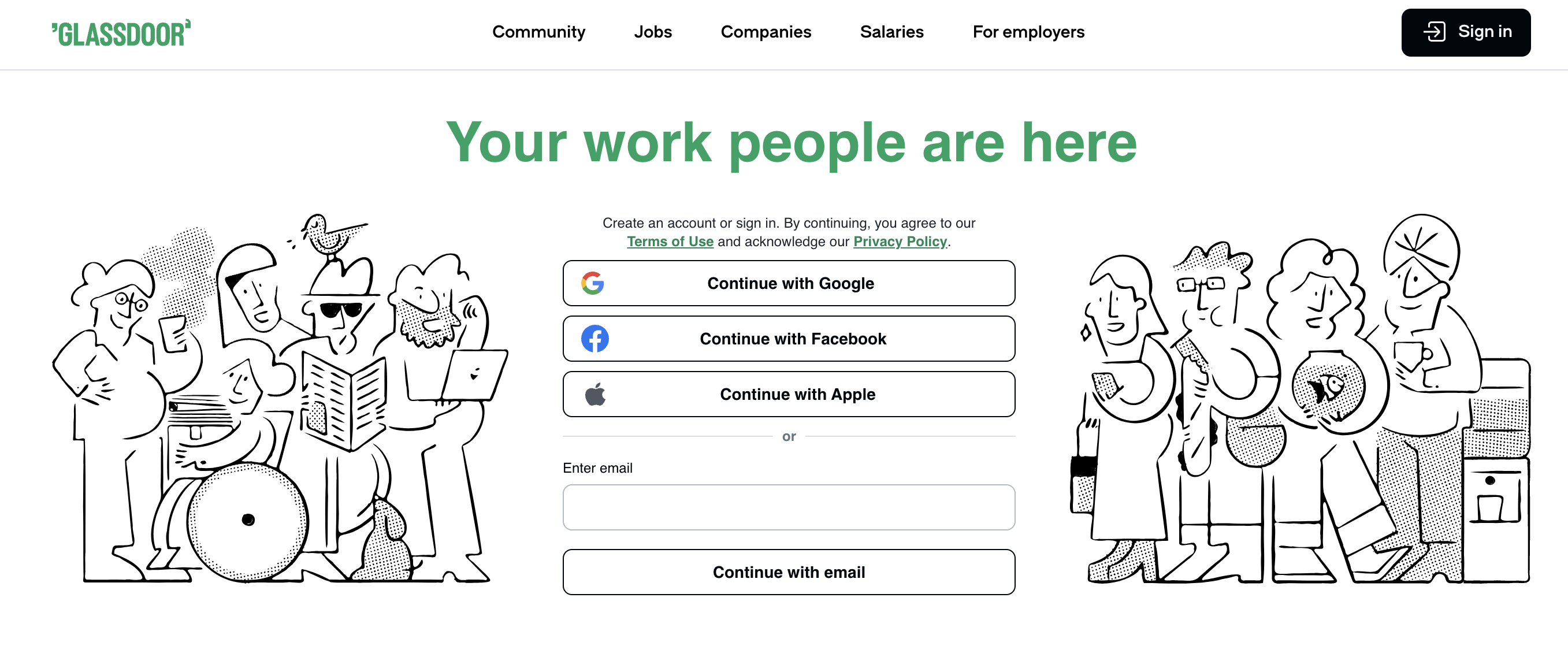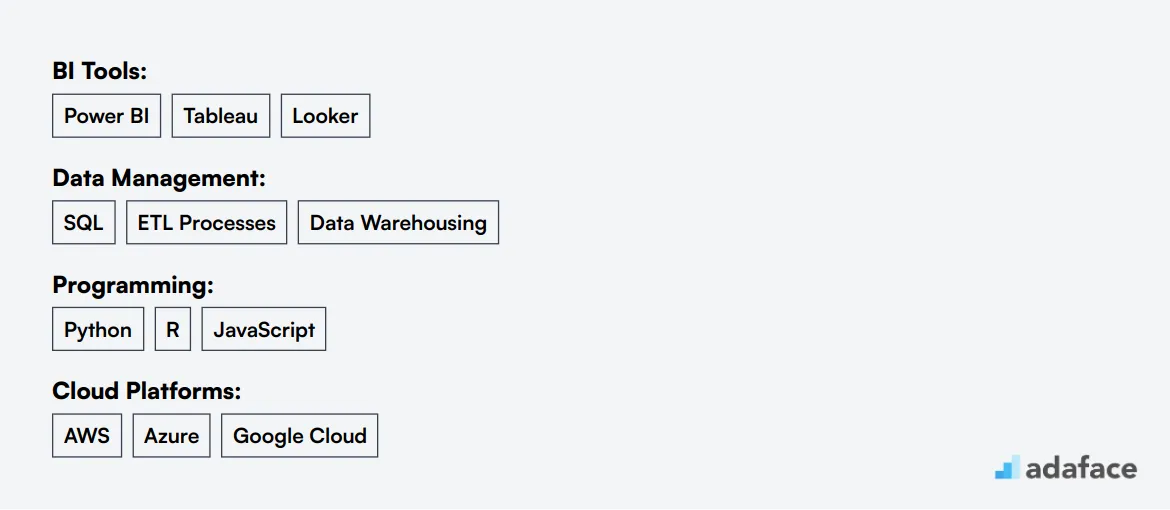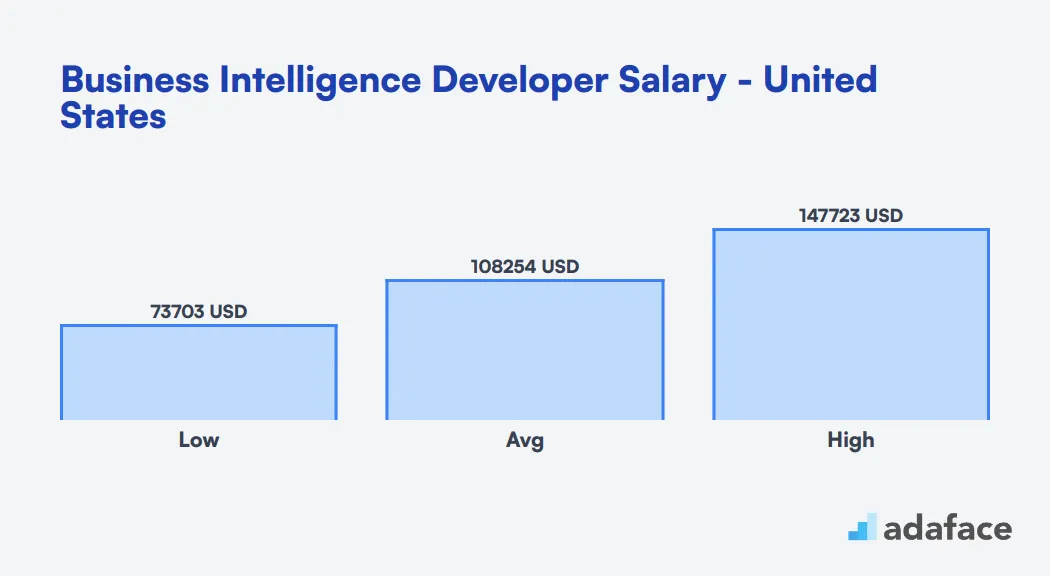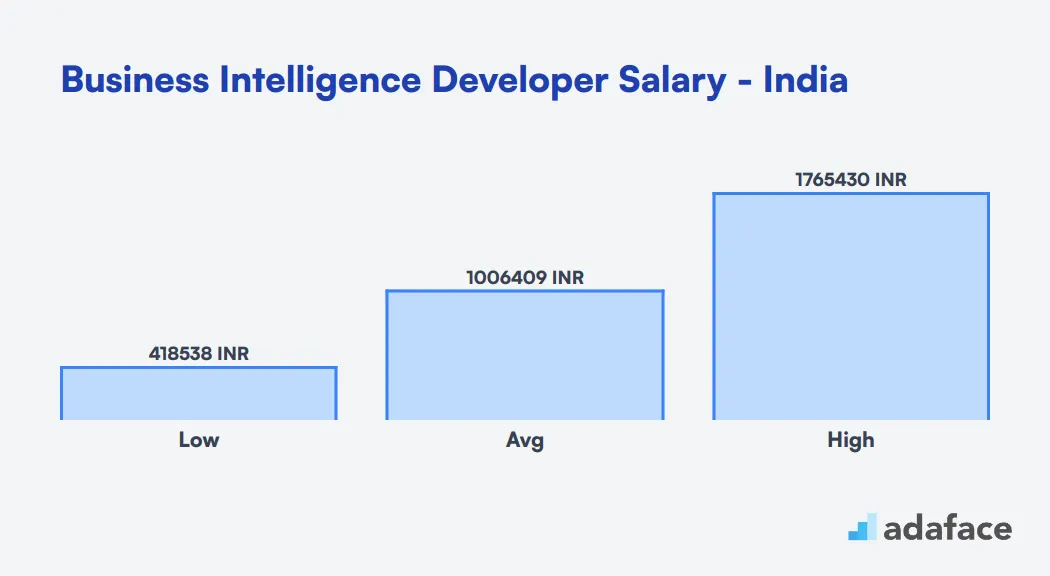As a recruiter, hiring a Business Intelligence (BI) Developer can be a complex task. Companies often struggle to find candidates with the right mix of technical skills, business acumen, and communication abilities. The role requires expertise in data analysis, visualization tools, and the ability to translate complex data into actionable insights. Many hiring managers make the mistake of focusing solely on technical skills, overlooking the importance of problem-solving and strategic thinking abilities.
This comprehensive guide will walk you through the process of hiring a top-notch Business Intelligence Developer. We'll cover everything from identifying key skills to structuring interviews and conducting assessments. To start your hiring process on the right foot, consider using our Business Intelligence Developer skills assessment to evaluate candidates objectively.
Table of contents
Hiring Process for Business Intelligence Developer
The journey to hiring a Business Intelligence Developer involves several strategic steps. It's about finding someone who can turn data into actionable insights for your business.
- Craft the Perfect Job Description: Start by clearly outlining the responsibilities and qualifications for a Business Intelligence Developer. This will help attract the right candidates. Here's a job description for reference.
- Resume Screening: Once your job post is live, you'll likely see resumes within a few days. Shortlist candidates who meet the basic criteria and have relevant experience.
- Skill Assessment: Use online assessment platforms to test candidates on their technical skills and problem-solving abilities. This phase should take about a week.
- Interviews: Conduct interviews with shortlisted candidates to understand their experience and how well they fit into your company culture. This step is critical for evaluating their communication skills and domain knowledge.
- Final Selection and Offer: After interviews, select the best fit for your team and extend an offer.
Overall, the process can take 1-2 months depending on the pace at which you move. Be prepared for each step with a checklist to ensure a smooth hiring experience. In the following sections, we'll explore each phase in more detail with useful tips and resources.
Key Skills and Qualifications for a Business Intelligence Developer
Creating the ideal candidate profile for a Business Intelligence Developer can be tricky. It's essential to discern between what's strictly required and what can be viewed as a preference. Different companies may prioritize varying skills, so clarity in these distinctions is key to finding the right fit for your team.
When evaluating candidates, focus on a mix of technical skills and qualifications that align with your organization's needs. Here are some commonly required and preferred skills for this role:
| Required skills and qualifications | Preferred skills and qualifications |
|---|---|
| Bachelor’s degree in Computer Science, Information Systems, or related field | Master’s degree in a relevant field |
| Proficiency in SQL and database management | Experience with cloud platforms like AWS, Azure, or Google Cloud |
| Experience with BI tools such as Power BI, Tableau, or Looker | Knowledge of programming languages such as Python or R |
| Strong analytical and problem-solving skills | Familiarity with big data technologies like Hadoop or Spark |
| Understanding of data warehousing and ETL processes | Experience in a business or industry-specific domain |
Where to Find Business Intelligence Developers
With your job description ready, it's time to post on job listing sites to attract potential candidates. LinkedIn is a great starting point for sourcing full-time Business Intelligence Developers due to its professional network and targeted search capabilities.
Ideal for recruiting full-time Business Intelligence Developers due to its professional network and ability to directly reach candidates with relevant skills.

Indeed
Suitable for posting job descriptions for various types of employment due to its wide reach and large user base.

Glassdoor
Best used when you want to leverage company reviews to attract candidates and for listing various types of job openings.

For freelance or remote work, platforms like Upwork and We Work Remotely offer access to a diverse pool of BI talent. Tech-focused sites such as Dice and GitHub Jobs are excellent for reaching developers with specific technical skills. Remember to tailor your approach based on the type of hire you're looking for, whether it's full-time, freelance, or remote.
How to Screen Business Intelligence Developer Resumes
When you're faced with a pile of resumes, resume screening becomes a critical step to find the best Business Intelligence Developer. The aim is to filter out unqualified candidates quickly so that you can focus on those who are a potential match for your team.

One approach is to manually scan resumes for key skills and qualifications. Look for mentions of "SQL," "Power BI," "Tableau," and "ETL processes" for a good fit. Additionally, qualifications such as a Bachelor's degree in Computer Science can be a strong indicator. Use our Business Intelligence Developer job description for a more detailed checklist.
For those who want to leverage technology, using AI language models like Claude or ChatGPT can streamline this process. Simply input the resumes and let AI identify resumes containing your key terms, saving you time while ensuring accuracy.
Here's a sample prompt to get you started:
TASK: Screen resumes to match job description for Business Intelligence Developer role
INPUT: Resumes
OUTPUT: For each resume, provide following information:
- Email id
- Name
- Matching keywords
- Score (out of 10 based on keywords matched)
- Recommendation (detailed recommendation of whether to shortlist this candidate or not)
- Shortlist (Yes, No or Maybe)
RULES:
- If you are unsure about a candidate's fit, put the candidate as Maybe instead of No
- Keep recommendation crisp and to the point.
KEYWORDS DATA:
- BI Tools (Power BI, Tableau, Looker)
- Data Management (SQL, ETL Processes, Data Warehousing)
- Programming (Python, R)
For more on how to tackle interviews, our business intelligence developer interview questions can help you prepare effectively.
Recommended skills tests to screen Business Intelligence Developers
To hire a proficient Business Intelligence Developer, it's important to assess their skills accurately. Skills tests are recommended as they provide objective insights into a candidate's abilities, ensuring they meet your organization's demands. Here are our top recommendations for evaluating Business Intelligence Developers:
Business Intelligence Developer Test: This assessment evaluates candidates on their ability to analyze complex business data and transform it into valuable insights. It's designed to gauge the candidate's understanding of BI concepts and their application.
SQL Online Test: SQL is foundational for querying and managing data efficiently in BI tools. This test helps to determine if the candidate can handle database operations and complex queries.
Data Analysis Test: Analyzing data is a core part of BI. This test checks the candidate’s capability to interpret data, spot trends, and make informed decisions, which is pivotal for driving business growth.
Power BI Online Test: Power BI is a key tool used by BI developers. This test assesses the candidate's proficiency in using Power BI for data visualization and creating interactive dashboards.
ETL Online Test: ETL processes are essential for data integration in BI environments. This test evaluates a candidate’s ability to extract, transform, and load data effectively, ensuring smooth data workflows.
Recommended Case Study Assignments to Screen Business Intelligence Developers
Case study assignments serve as an effective method to evaluate potential Business Intelligence Developers. However, they come with drawbacks such as being time-consuming and potentially leading to low completion rates. There's always the risk of losing talented candidates due to the length of these assignments. Despite these challenges, well-designed case studies can provide invaluable insights into a candidate's problem-solving abilities and approach.
Data Integration Challenge: This assignment involves integrating data from multiple sources to create a unified view. It's recommended because it tests the candidate's ability to handle complex data sets, a key skill for Business Intelligence roles. Understanding the nuances of data warehousing is crucial, as it often involves storing and organizing large volumes of data for easy access.
Predictive Analysis Scenario: This case study requires candidates to use historical data to predict future trends. It assesses their mastery of data modeling techniques and their ability to derive actionable insights from past patterns. Predictive analysis is a fundamental aspect of decision-making in companies aiming to stay ahead in their industries.
Report Generation Task: Candidates are asked to generate insightful reports from raw data. This assignment is recommended as it evaluates a key aspect of Business Intelligence work: the ability to communicate data-driven insights to stakeholders effectively. Proficiency in reporting tools like Power BI or Tableau is often necessary for creating clear, informative reports.
How to Structure Interview Stage for Hiring Business Intelligence Developers
Candidates who successfully pass the skills tests should advance to technical interviews where their hard skills are assessed. While skills tests are effective for filtering out unfit candidates, they don't always identify the best-suited individuals for the role. This is why the interview stage is crucial for evaluating a candidate's technical prowess and problem-solving approach.
During the interview, consider asking questions such as: What experience do you have with data visualization tools like Tableau or Power BI? How do you approach data modeling? Can you provide an example of a complex SQL query you've written? What challenges have you faced in data warehousing projects? How do you ensure the accuracy of your data analysis? These questions are designed to gauge the candidate's competency in key areas integral to the role of a Business Intelligence Developer.
Understanding the Cost to Hire a Business Intelligence Developer
Hiring a Business Intelligence Developer can vary significantly in cost based on factors like location, experience, and the specific skills required. In the United States, the average salary is around $108,255 per year, with a range typically between $73,703 and $147,724.
In contrast, salaries in countries like India average approximately INR 1,006,409 annually, with variations based on the city and market demand. Understanding these salary expectations is crucial for effective recruitment.
Business Intelligence Developer Salary in the United States
The average salary for a Business Intelligence Developer in the United States is approximately $108,255 per year. Salaries typically range from $73,703 at the low end to $147,724 at the high end, depending on factors such as location and experience.
For instance, in cities like Dallas and Plano, TX, salaries can reach up to $151,696 and $159,141, respectively. Meanwhile, in places such as Seattle, WA and San Diego, CA, the average salaries hover around the $94,568 to $87,633 range.

Business Intelligence Developer Salary in India
The average salary for a Business Intelligence Developer in India typically ranges from INR 418,538 to INR 1,765,431 per year. On average, you can expect a salary around INR 1,006,409. Major cities like Bengaluru and Mumbai offer higher salaries compared to other regions, with averages of INR 1,466,607 and INR 884,000, respectively.

What are the Ranks of Business Intelligence Developers?
Business Intelligence (BI) Developers play a key role in transforming data into actionable insights, yet many misunderstand the distinctions among various roles within the BI field. Understanding the ranks of BI Developers helps in making informed hiring decisions, ensuring the right skills align with your organization's data goals.
Junior Business Intelligence Developer: This is an entry-level position where individuals begin their journey in the BI world. They typically work under the guidance of senior developers and focus on tasks like data extraction, report generation, and learning various BI tools and technologies.
Mid-Level Business Intelligence Developer: Professionals at this level have gained some experience and are comfortable handling more complex projects. They are responsible for developing data models, creating dashboards, and collaborating with different teams to meet business requirements. Their knowledge of BI tools such as Power BI or Tableau enhances their productivity.
Senior Business Intelligence Developer: These developers possess extensive experience and have a strategic role within the organization. They design comprehensive BI solutions, optimize data processes, and take ownership of major projects. Often, they serve as mentors to junior developers and collaborate closely with stakeholders to align BI solutions with business objectives.
Lead Business Intelligence Developer: This role involves leading a team of BI developers and managing the end-to-end delivery of BI solutions. They ensure the alignment of BI projects with the organization’s goals, oversee project timelines, and maintain quality standards. Their expertise in data modeling and architecture is crucial for successful implementation.
Hire the Best Business Intelligence Developers
We've covered the key aspects of hiring Business Intelligence Developers, from the hiring process and required skills to screening methods and interview strategies. Remember, a well-crafted job description, thorough resume screening, and targeted skills assessments are the building blocks of a successful hire.
If there's one takeaway from this guide, it's the importance of using the right tools to make your hiring process more accurate. Implementing skills tests for Business Intelligence Developers can significantly improve your chances of finding the perfect candidate for your team.
BI Developer Test
FAQs
Key skills for a Business Intelligence Developer include proficiency in SQL, data visualization tools (like Tableau or Power BI), ETL processes, data modeling, and strong analytical and problem-solving abilities. They should also have good communication skills to translate technical insights into business language.
When screening resumes, look for relevant experience with BI tools, data warehousing projects, and a track record of delivering actionable insights. Pay attention to candidates who have worked with similar data volumes and complexity as your organization. Also, consider their educational background in fields like computer science, statistics, or business analytics.
Use a combination of technical and practical assessments. Consider using SQL tests, data visualization challenges, and case studies that mimic real-world BI scenarios. Our Business Intelligence Developer test can help evaluate candidates' skills objectively.
Look for candidates on professional networking sites like LinkedIn, job boards specializing in data and analytics roles, and at industry conferences or meetups. Don't overlook internal candidates who may have the potential to grow into the role. Employee referrals can also be a valuable source of qualified candidates.
Structure your interview process in multiple stages: an initial screening call, a technical interview focusing on BI tools and methodologies, a practical test or case study, and a final interview with the team or stakeholders. This approach helps assess both technical skills and cultural fit.
Be cautious of candidates who can't explain their previous projects in detail, lack experience with modern BI tools, or show little interest in understanding business context. Also, watch out for those who struggle to communicate complex ideas simply or show resistance to learning new technologies.
The hiring process for a Business Intelligence Developer can take anywhere from 4 to 8 weeks, depending on your company's hiring procedures and the availability of qualified candidates. Streamline the process by using pre-employment assessments and structured interviews to quickly identify top candidates.

40 min skill tests.
No trick questions.
Accurate shortlisting.
We make it easy for you to find the best candidates in your pipeline with a 40 min skills test.
Try for freeRelated posts
Free resources



